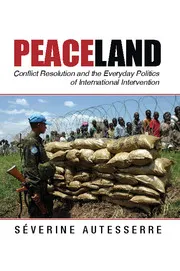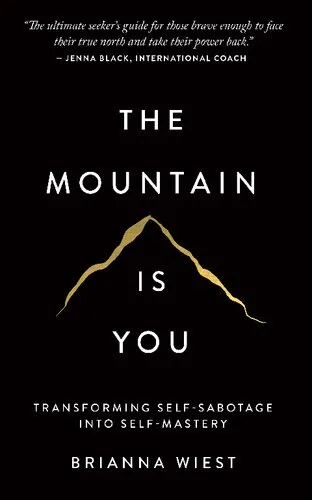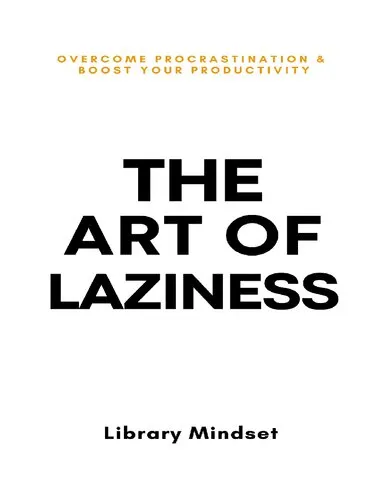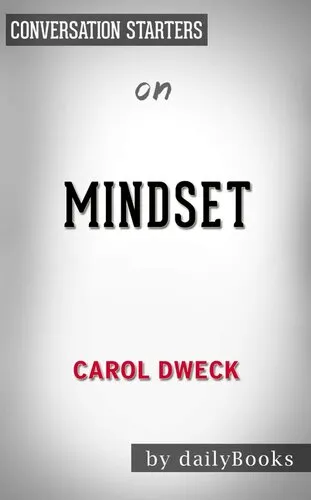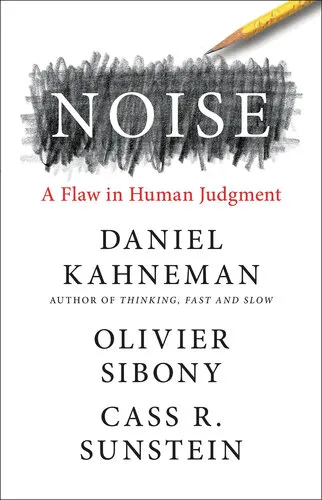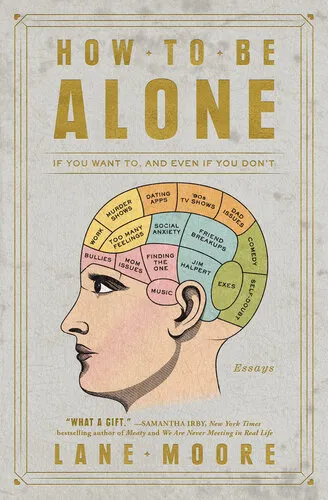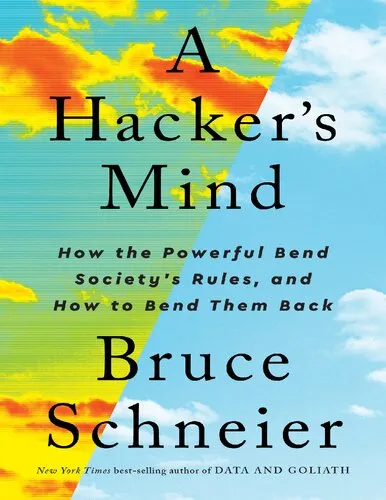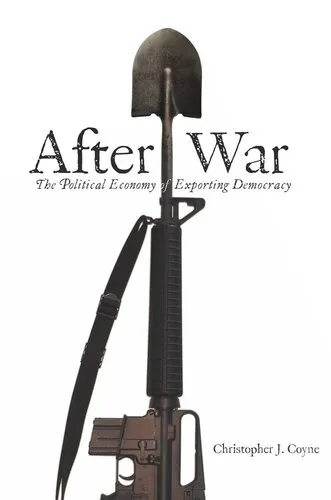Peaceland: Conflict Resolution and the Everyday Politics of International Intervention
4.2
بر اساس نظر کاربران

شما میتونید سوالاتتون در باره کتاب رو از هوش مصنوعیش بعد از ورود بپرسید
هر دانلود یا پرسش از هوش مصنوعی 2 امتیاز لازم دارد، برای بدست آوردن امتیاز رایگان، به صفحه ی راهنمای امتیازات سر بزنید و یک سری کار ارزشمند انجام بدینکتاب های مرتبط:
خلاصه تحلیلی کتاب
کتاب Peaceland: Conflict Resolution and the Everyday Politics of International Intervention حاصل سالها پژوهش میدانی و مشاهده دقیق رفتارها، عادات و فرهنگ روزمره کادرهای بینالمللی فعال در حوزه حل و فصل مناقشه است. در این اثر، من نشان میدهم که چگونه تعاملهای کوچک، رویههای نانوشته و شبکههای غیررسمی تأثیر عمیقی بر موفقیت یا شکست مأموریتهای بینالمللی دارند.
به جای تمرکز صرف بر سیاستگذاریها و اسناد رسمی، کتاب به بررسی بُعد انسانی مداخله میپردازد؛ جایی که عادات کاری، انتخابهای اجتماعی و فرهنگی، و نگرشهای شخصی دستاندرکاران میتواند مسیر یک مأموریت را شکل دهد. این نگاه به حوزه «Conflict Resolution» زاویهای تازه و جامع میبخشد.
در روایتها و مطالعات موردی کتاب، خواننده قدمبهقدم وارد زندگی روزمره متخصصان، ناظران صلح، و کارمندان سازمانهای بینالمللی میشود؛ تجربههایی که معمولاً در گزارشهای رسمی مغفول میمانند اما در میدان عملیات، تعیینکنندهاند.
نکات کلیدی و کاربردی
یکی از آموزههای محوری کتاب این است که سیاستهای خرد و تعاملات روزانه به اندازه تصمیمات کلان اهمیت دارند. غفلت از این جنبهها میتواند به سوءتفاهم، بیاعتمادی و کاهش کارایی منجر شود.
کتاب همچنین نشان میدهد که موفقیت در «Conflict Resolution» وابسته به توانایی مداخلهگران در برقراری ارتباط انسانی و فرهنگی با جوامع محلی است. درک حساسیتها، زبان بدن، و حتی انتخاب محل سکونت میتواند نتایج مأموریت را تحت تأثیر قرار دهد.
برای پژوهشگران و سیاستگذاران، این اثر به منزله هشدار است که تمرکز صرف بر ساختارهای رسمی کافی نیست؛ بلکه نیاز به شناخت و بهبود «Everyday Politics» در میدان وجود دارد.
نقلقولهای ماندگار
در طول کتاب، جملاتی وجود دارد که عصاره پیام آن را به شکلی موجز منتقل میکنند. این نقلقولها برای خوانندگان جدی، یادآور اهمیت نگاه جزئینگر به مداخلات بینالمللی هستند.
تغییر در میدان، از تغییر در روابط روزمره آغاز میشود. نامشخص
مأموریت صلح تنها در جلسات تصمیمگیری شکل نمیگیرد، بلکه در گفتگوهای غیررسمی و تعاملات روزمره جان میگیرد. نامشخص
چرا این کتاب اهمیت دارد
اهمیت کتاب نه فقط در محتوای تحلیلی آن، بلکه در شکستن قالب کلیشهای نگاه به مأموریتهای بینالمللی است. این اثر دوباره توجه ما را به پشتصحنه کارزارهای «Conflict Resolution» جلب میکند؛ جایی که پویاییهای روزانه بر نتیجه نهایی سایه میافکنند.
برای سیاستگذاران و سازمانهای بینالمللی، پیام روشن است: سرمایهگذاری بر بهبود تعاملات انسانی و درک فرهنگ محلی، بخشی اساسی از موفقیت مأموریتهاست. برای پژوهشگران نیز، این کتاب منبعی ارزشمند جهت مطالعه و تحلیل رابطه میان «Everyday Politics» و کارآمدی مداخلات است.
از آنجا که تمرکز بسیاری از منابع بر ساختارهای رسمی و اسناد است، این کتاب با شکافتن لایههای غیررسمی و روزمره، تصویری کاملتر ارائه میدهد.
نتیجهگیری الهامبخش
کتاب Peaceland: Conflict Resolution and the Everyday Politics of International Intervention یادآور این حقیقت است که صلح پایدار، نه فقط محصول توافقات رسمی و طرحهای کلان، بلکه نتیجه تعاملات خرد، روابط انسانی و فهم متقابل است. این اثر پژوهشگران و علاقهمندان جد
Analytical Summary
Peaceland: Conflict Resolution and the Everyday Politics of International Intervention offers an unconventional and deeply researched look into the daily lives, habits, and perspectives of international peacebuilders. Rather than focusing solely on policy frameworks or high-level negotiations, this authoritative work examines the micro-level practices that, often unintentionally, hinder or help effective peacebuilding in conflict zones.
Drawing from extensive ethnographic fieldwork, personal observations, and professional engagement, the author examines how cultural, organizational, and interpersonal dynamics influence the broader objectives of international intervention. The analysis illuminates how decisions made in routine operations ripple outward, shaping both local communities and global strategies.
Combining vivid narratives and academic rigor, the book moves beyond abstract theory to reveal the human dimension behind peacebuilding: the relationships, traditions, and everyday choices that contribute to success or failure. This perspective challenges common assumptions and invites policymakers, scholars, and practitioners to rethink their approaches.
Key Takeaways
The book’s core insights transform how we perceive international interventions, shining light on subtle yet powerful influences in conflict resolution.
First, the daily routines of expatriate peacebuilders matter greatly. Habits such as socializing primarily within expatriate circles can unintentionally create distance from local communities, thereby limiting cultural understanding and trust. Second, institutional structures often reward short-term outputs over long-term relationship building, undermining sustained peace. Third, genuine collaboration requires challenging entrenched bureaucratic norms and actively engaging in adaptive, locally sensitive strategies.
Fourth, the work underscores the importance of humility and reflexivity among international actors. Recognizing one’s own biases and limitations is critical for impactful conflict resolution. Finally, effective peacebuilding is less about a prescriptive set of policies and more about cultivating a responsive, context-aware approach, informed by the lived realities of “Peaceland.”
Memorable Quotes
“True change begins with the smallest interactions in the field.”Unknown
“Peacebuilding is not only about treaties and councils—it is about shared coffee and lived trust.”Unknown
“Structures shape choices, and choices shape peace.”Unknown
Why This Book Matters
Peaceland: Conflict Resolution and the Everyday Politics of International Intervention matters because it brings a nuanced, ground-level lens to discussions often dominated by political elites and formal agreements.
For academics, the book offers a rich empirical foundation for rethinking intervention strategies through the lens of anthropology, political science, and sociology. Practitioners gain actionable insights into the practical barriers and enablers of success in conflict zones, while policymakers are urged to integrate human-centered approaches into policy formation.
Its relevance extends beyond traditional peacebuilding; it informs broader debates on international aid, humanitarian logistics, and the ethics of intervention. By focusing on lived experience rather than abstract ideals, the book has become a touchpoint for those committed to meaningful, respectful, and sustainable collaboration in complex environments.
Inspiring Conclusion
In closing, Peaceland: Conflict Resolution and the Everyday Politics of International Intervention invites readers to step into the lived realities behind the headlines of conflict and peace.
Whether you are an academic, a field practitioner, or a policymaker, this work encourages you to critically assess the everyday decisions, relationships, and interactions that shape intervention outcomes. It underscores the transformative power of small, intentional acts and the importance of embedding cultural sensitivity and humility in every aspect of peacebuilding.
Your next step could be to read the book in depth, share its insights with colleagues, or spark discussion in your organization. By doing so, you contribute to a global dialogue that redefines success in conflict resolution—not only at summits but also in the daily practices of “Peaceland.”
دانلود رایگان مستقیم
شما میتونید سوالاتتون در باره کتاب رو از هوش مصنوعیش بعد از ورود بپرسید
دسترسی به کتابها از طریق پلتفرمهای قانونی و کتابخانههای عمومی نه تنها از حقوق نویسندگان و ناشران حمایت میکند، بلکه به پایداری فرهنگ کتابخوانی نیز کمک میرساند. پیش از دانلود، لحظهای به بررسی این گزینهها فکر کنید.
این کتاب رو در پلتفرم های دیگه ببینید
WorldCat به شما کمک میکنه تا کتاب ها رو در کتابخانه های سراسر دنیا پیدا کنید
امتیازها، نظرات تخصصی و صحبت ها درباره کتاب را در Goodreads ببینید
کتابهای کمیاب یا دست دوم را در AbeBooks پیدا کنید و بخرید
1311
بازدید4.2
امتیاز0
نظر98%
رضایتنظرات:
4.2
بر اساس 0 نظر کاربران
Questions & Answers
Ask questions about this book or help others by answering
No questions yet. Be the first to ask!
